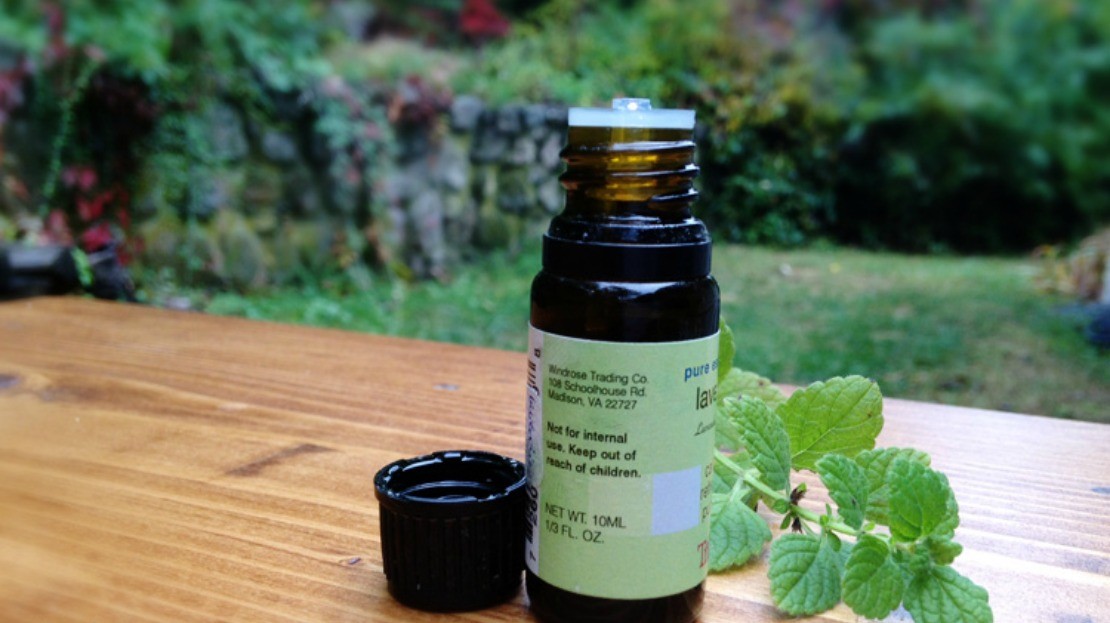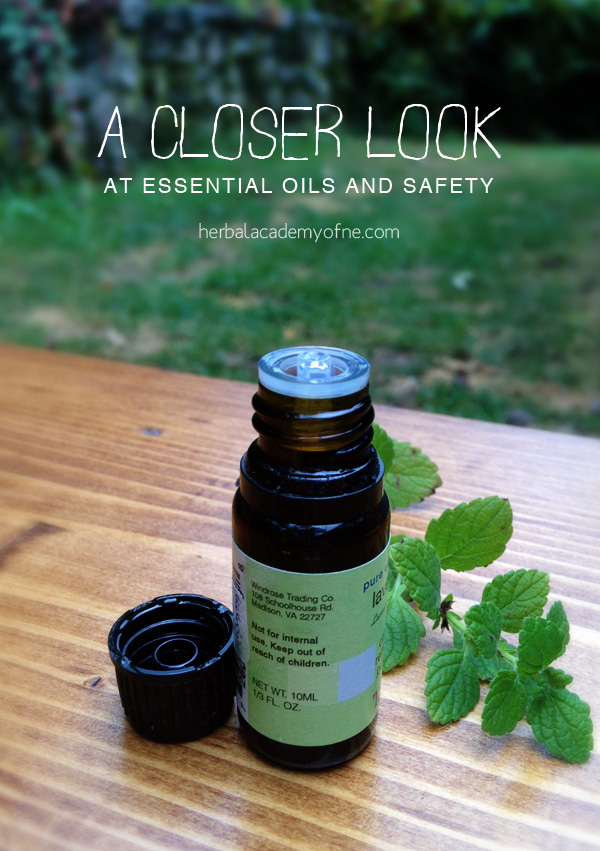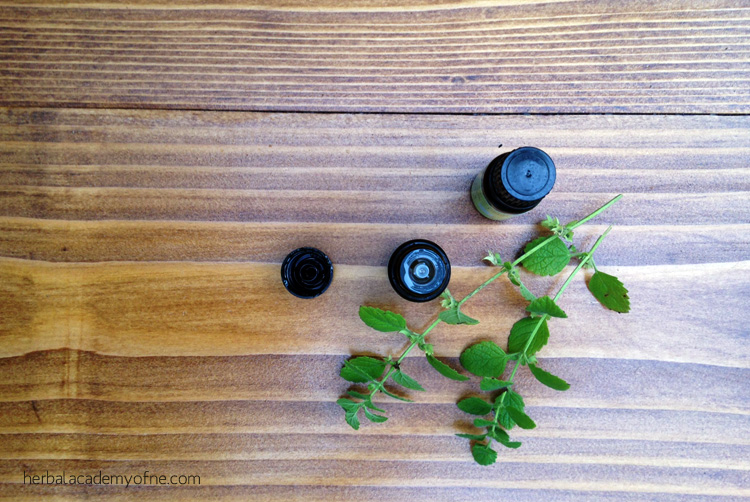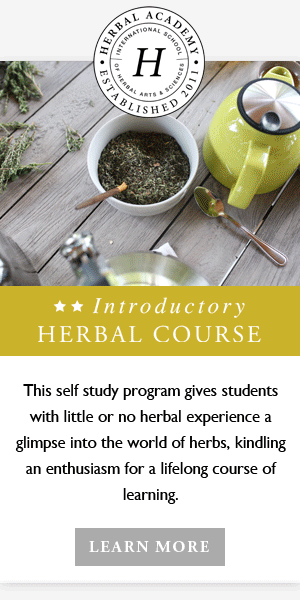
A Closer Look at Essential Oils and Safety
Last week, the FDA sent warning letters to two very well-known essential oil companies. Here we would like to take a moment to take a closer look at essential oils and safety as well as explain what these letters mean for EO users. In the two documents (Letter to Young Living and Letter to doTERRA), the FDA warned these companies to stop promoting their products as “cures” for a host of illnesses and complaints.
These essential oil companies labeled their products as “supplements,” but the FDA says otherwise:
We note that some of your products are marketed as dietary supplements, but are marketed for topical use. Under section 201(ff)(2)(A)(i) of the Act [21 U.S.C. § 321(ff)](2)(A)(i)], a dietary supplement is defined, among other things, as a product intended for ingestion. Topical products are not dietary supplements.
According to the FDA, these essential oils are classified as “new drugs” due to the wording of the claims made by the companies and its reps/consultants:
Moreover, your products are “new drugs” under section 201(p) of the Act [21 U.S.C. § 321(p)] because they are not generally recognized as safe and effective for use under the conditions prescribed, recommended, or suggested in their labeling. Under sections 301(d) and 505(a) of the Act [21 U.S.C. §§ 331(d) and 355(a)], a new drug may not be introduced or delivered for introduction into interstate commerce unless an FDA-approved application is in effect for it. Your sale of these products without approved applications violates these provisions of the Act. FDA approves a new drug on the basis of scientific data and information demonstrating that the drug is safe and effective.
Unfortunately, if the companies do not comply, the FDA may be forced to initiate the regulation of essential oils.

What This Means For EO Consumers
Contrary to popular thought, the FDA does not pre-approve essential oils. They neither regulate the contents or the labeling. Companies can say pretty much what they want – at least until the FDA catches up to them.
It is very important that we as consumers take responsibility and educate ourselves using well-documented, evidence-based information presented by recognized experts in the field of aromatherapy.
Educating ourselves on essential oils (and herbs) will empower us to use alternative health products safely. We won’t need to rely on labels that may or may not contain accurate and safe information. We can use the knowledge we gained to properly, and safely, use essential oils as the wonderful tools that they are.
Essential Oils or Herbs?
Essential oils and herbs are both tools we can use. Usually, we only need to gently nudge our body into healing, and this is when herbs are our friend.
Gentle, child-safe herbs can be great tools to use for children. Lavender-infused bath oil can be used in a calming bath. Many parents already use chamomile tea to help a child settle down for bed and fennel tea to soothe a colicky baby or gassy toddler. Pink eye can be addressed by applying a moistened chamomile tea bag over the closed eye.
Even adults can find herbs to be the better choice for some health issues. Astragalus, ashwagandha, and licorice are three adaptogens which can help one’s body fight stress. Echinacea inhibits hyaluronidase (an enzyme secreted by bacteria which helps them gain access to healthy cells) and can be used to fight a cold.
If you aren’t sure whether to use herbs or essential oils for your ailment, stop. Research and educate yourself first before using something you are not familiar with.
Learn More About Herbs
If you are interested in learning more about herbs, I highly recommend the courses here at the Herbal Academy of New England. I’ve taken both of their courses (Introductory Herbal Course and Intermediate Herbal Course), and I recommend them to everyone interested in herbal medicine. The herbalism programs are packed with a wide range of detailed information, and the teachers are very accessible if you have any questions. You can truly go at your own pace, as your schedule allows – it’s very flexible! And you will love the pdf books and charts included.
In this day and age where health care costs are so high, you will definitely come out ahead when you arm yourself with the knowledge needed to take care of yourself – and your family – for the cost of a couple of doctor’s visits. You won’t be sorry.
Learn More About Essential Oils
You can find free information and essential oil education on UsingEOsSafely.com. Here are some links to get you started:
- Properly Diluting Essential Oils
- Essential Oils and Children (what to use, what to avoid, and resources for further reading)
- Essential Oils and Pregnancy/Breastfeeding (what to use, what to avoid)
- Carrier Oils to use
- Phototoxic Essential Oils
- Sensitization
- Ingesting Essential Oils
- “Therapeutic Grade” Essential Oils
- What You Must Know Before Using Thieves-type Essential Oil Blends
If you are interested in reading more about essential oils, check out the book, Essential Oil Safety, by Robert Tisserand and Rodney Young. You can also join the Using Essential Oils Safely Facebook group.
Sources: FDA Warning Letter to Young Living, FDA Warning Letter to doTERRA.








